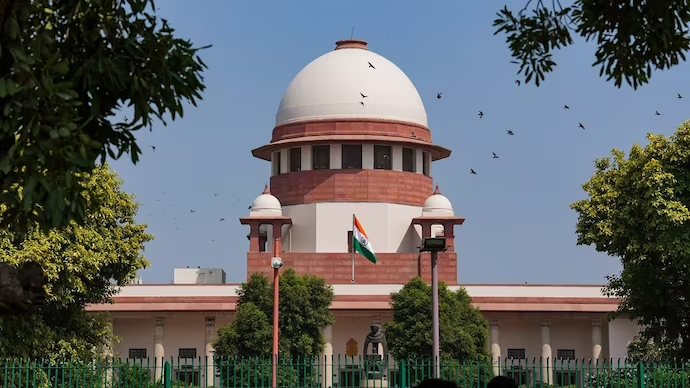ED not expected to be vindictive in its conduct, must furnish grounds of arrest to accused: SC
The top court said failure of the accused to respond to the questions put to them by the ED would not be sufficient in itself for the investigating officer to opine that they were liable to be arrested.
By Newsmeter Network
Representational Image.
New Delhi: The Enforcement Directorate is not expected to be "vindictive" in its conduct and must act with utmost probity and fairness, the Supreme Court has held, and directed the anti-money laundering agency to henceforth furnish the grounds of arrest to the accused in writing "without exception". In a significant verdict having far-reaching ramifications, the apex court said being a premier investigating agency charged with the onerous responsibility of curbing the debilitating economic offence of money laundering in the country, every action of the ED in the course of such exercise is expected to be "transparent, above board and conforming to pristine standards of fair play in action".
"The ED, mantled with far-reaching powers under the stringent Act of 2002, is not expected to be vindictive in its conduct and must be seen to be acting with utmost probity and with the highest degree of dispassion and fairness," a bench of Justices AS Bopanna and Sanjay Kumar said. The top court, which set aside the orders of the Punjab and Haryana High Court as well as the arrest memos, ordered forthwith the release of Basant Bansal and Pankaj Bansal, directors of Gurugram-based realty group M3M, in a money laundering case.
The bench delivered its verdict on Tuesday on a plea by the Bansals challenging various orders of the high court, including the one which rejected their bail pleas. The top court said failure of the accused to respond to the questions put to them by the ED would not be sufficient in itself for the investigating officer to opine that they were liable to be arrested.
"Mere non-cooperation of a witness in response to the summons issued under Section 50 of the (PMLA) Act of 2002 would not be enough to render him/her liable to be arrested under Section 19," the bench said. Justice Kumar, who penned the verdict on behalf of the bench, also questioned the manner of arrest of the Bansals in the case and said the chronology of events "speaks volumes and reflects rather poorly, if not negatively, on the ED's style of functioning".
Referring to the provision of the Prevention of Money Laundering Act (PMLA) related to informing the arrested person about the grounds of arrest, the bench said, "We hold that it would be necessary, henceforth, that a copy of such written grounds of arrest is furnished to the arrested person as a matter of course and without exception". The top court said if any sensitive material is mentioned in the grounds of arrest, it would always be open for the ED to redact such sensitive portions in the document and furnish the edited copy of grounds of arrest to the arrested person, so as to safeguard the sanctity of the investigation.
It expressed surprise that no consistent and uniform practice was followed by the ED in supplying grounds of arrest to the accused. It was being provided in certain parts of the country but not in others, it said.
"Conveyance of this information is not only to apprise the arrested person of why he/she is being arrested but also to enable such person to seek legal counsel and, thereafter, present a case before the Court under Section 45 to seek release on bail, if he/she so chooses," the bench said. Slamming the probe agency for its "clandestine conduct" of arresting the Bansals after registering a second case soon after they were provided protection by the Delhi High Court in the first case, the bench said this "does not commend acceptance as it reeks of arbitrary exercise of power. In effect, the arrest of the appellants and, in consequence, their remand to the custody of the ED and, thereafter, to judicial custody, cannot be sustained".
Basant and Pankaj Bansal were earlier arrested by the ED in connection with the money laundering probe linked to an alleged bribery case.
The money laundering case in which Basant and Pankaj Bansal have been arrested pertains to an FIR filed by the anti-corruption bureau of the Haryana Police in April against Sudhir Parmar, a former special judge for ED and CBI cases who was posted in Panchkula, his nephew and a third M3M group director Roop Kumar Bansal.
In its FIR, the ED alleged, reliable information was received that Parmar was showing "favouritism" to accused Roop Kumar Bansal, his brother Basant Bansal and real estate firm IREO owner Lalit Goyal in the ED and CBI cases pending against them in his court.
Parmar was suspended by the Punjab and Haryana High Court after the registration of a case by the anti-corruption bureau.
The ED said it has collected "incriminating evidence such as bank statements and money trail, etc." with respect to the allegations in the FIR before making the arrests.
Inputs from PTI